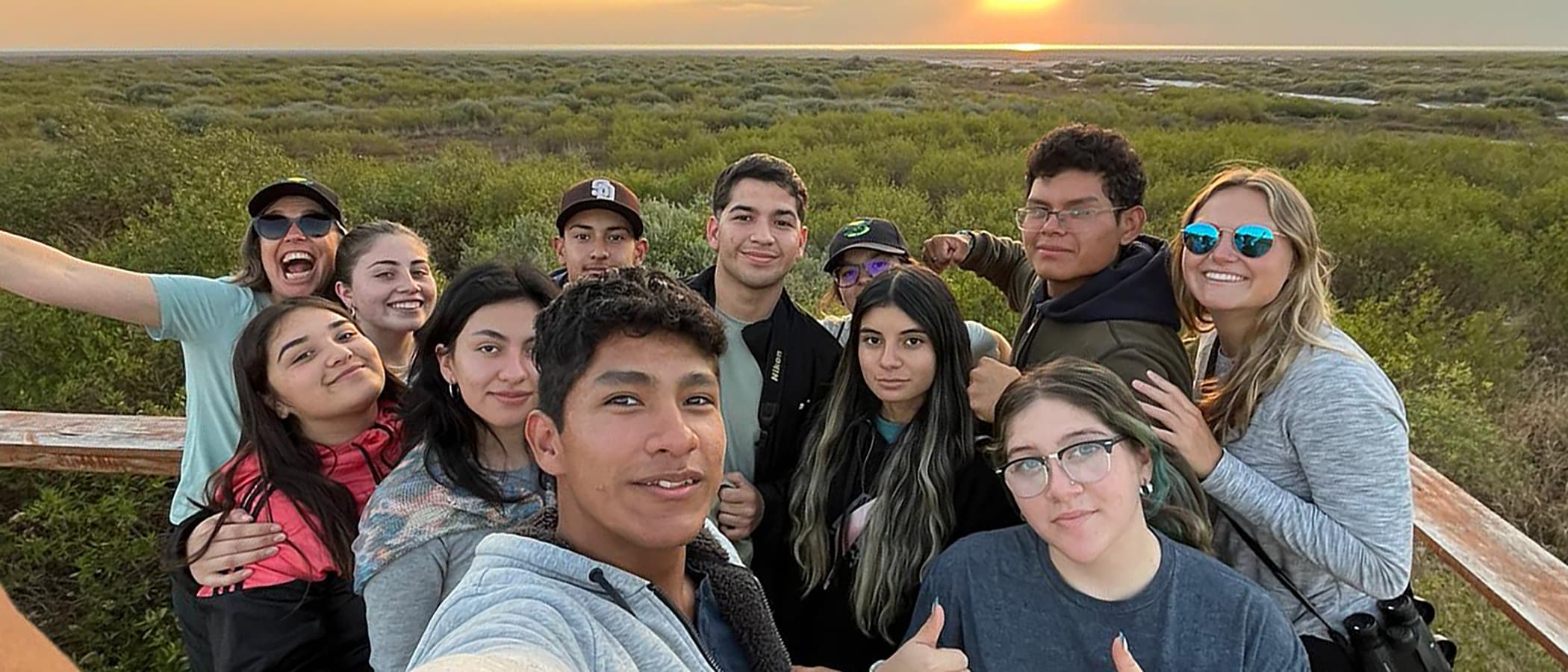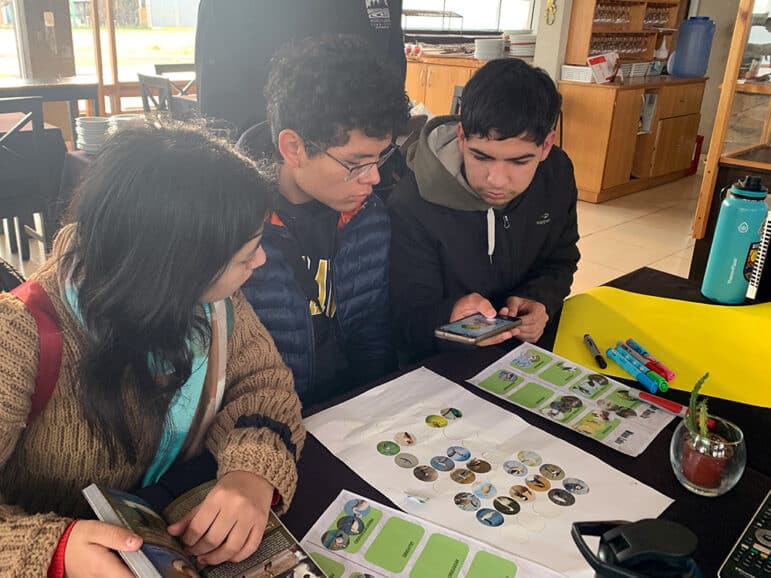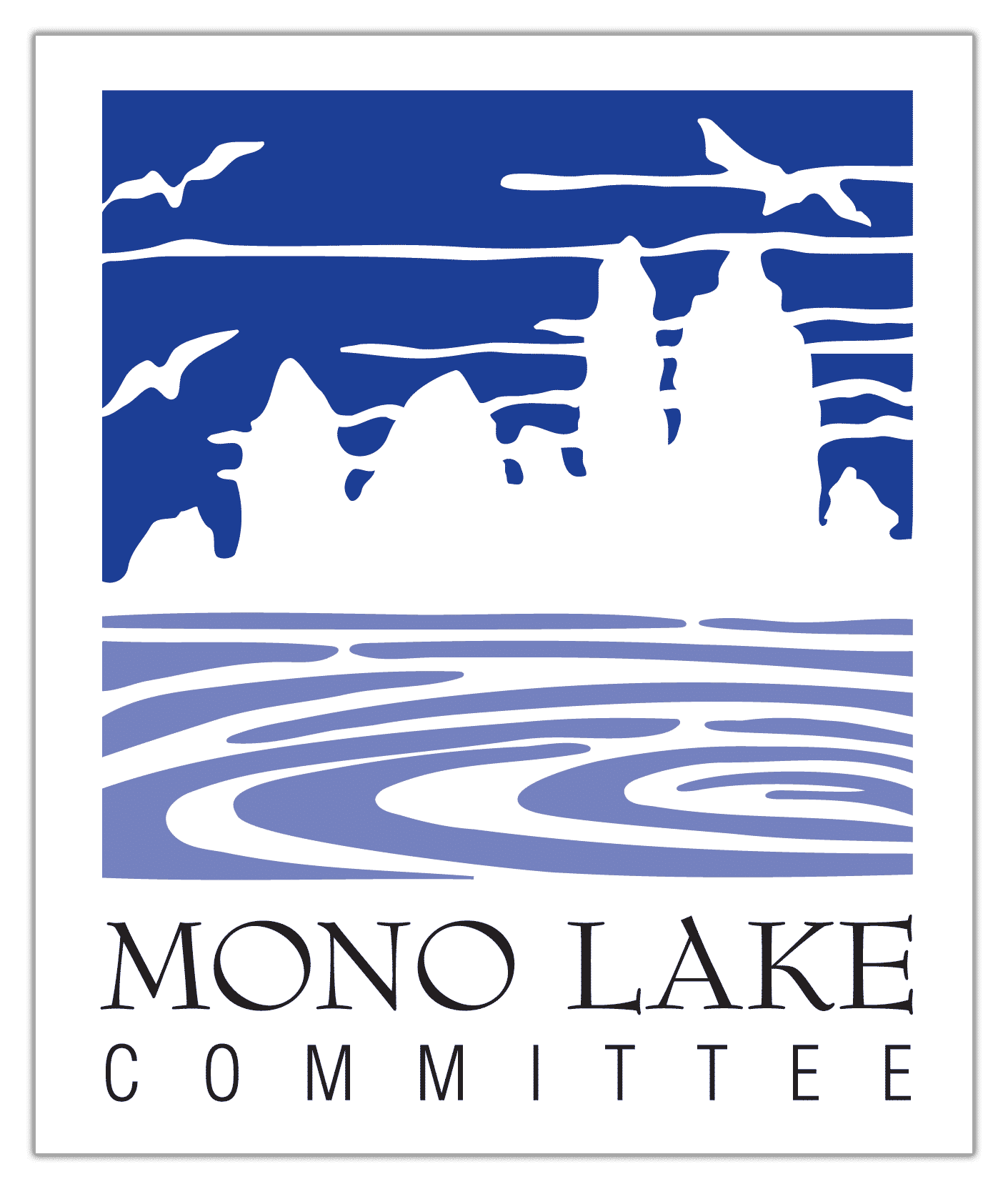
When the program began, Experience Ambientalia was to get the local youth involved with environmental issues and raise awareness of the importance of Mono Lake to migratory birds. Now it has allowed students to connect more deeply with Mono Lake itself and student participants from Argentina. To me, Experience Ambientalia was a program that focused on educating its participants about Mono Lake’s migratory birds as well as the connections with Laguna Mar Chiquita in Miramar, Argentina. This program is the perfect opportunity for students to grow closer to the lake and understand its ecosystem.

Before I understood more about Mono Lake, my English teacher, Ms. Sarah Taylor, informed me of the developing Experience Ambientalia program which sought to recruit Lee Vining High School students to participate in monthly activities which revolved around the lake. It wasn’t until I saw the program’s logo when I realized that I met the coordinator, Marina Castellino, at the Mono Basin Bird Chautauqua in 2023. At this realization, I knew I had to join the program as I remember Marina as extremely passionate about the program. Not only that, but she and Ms. Taylor explained that sometime during the year, a group from Experience Ambientalia in Argentina would travel to Mono Lake and explore the Mono Basin. Then afterwards, our group would do the same thing and travel to Laguna Mar Chiquita in Argentina. Having never traveled to a country beyond Mexico, I knew that I’d meet incredible and remarkable young people as well as explore a beautiful and unforgettable country.
In the months leading up to the exchange, our group did several activities around the lake and one at DeChambeau Ponds. In the fall, we canoed around the shores of Navy Beach and South Tufa. Through this activity, we were to get a closer bond to Mono Lake, as well as seeing the remaining shorebirds. Shortly after disembarking, we did a coastal cleanup, walking along the shore of Mono Lake, collecting as much trash as we could. The next activity, we went to DeChambeau Ponds to observe Coots and cut overgrown willow to prevent them from clogging the ponds. Throughout the year, we had a few migratory bird days, observing the remaining birds before they too would leave. Overall, these activities at Mono Lake laid down the foundation of the program and what it meant to be a part of it.
As the exchange grew closer, June was a busy month. Just days before the Argentinians arrived, I graduated from high school. Four days later, the group from Argentina arrived at the Mono Basin Outdoor Education Center (OEC) for a week of exciting activities around the Mono Basin. At first, it was bizarre that mid-way through June, the temperature dropped dramatically. The original plan was to camp outside the OEC for all seven days, but the first three days were extremely cold, so we slept inside instead. But that didn’t stop us from enjoying the first phase of the exchange. The first night, we drove out to the Jeffrey pine forest where we looked at star constellations in the night sky. On top of that, we listened to how noise echoes throughout the forest, slowly fading with every second that passed. We also went birding many times throughout the week, especially along Owens River Road, where we saw a variety of birds, including one Western Tanager.
The exchange not only connected Laguna Mar Chiquita and Mono Lake, it connected the youth of lakes. The Argentinians learned of our American culture and together, we bonded as friends. This was especially true when we presented the program at the Mono Basin Scenic Area Visitor Center in front of a crowd, where all of us were nervous. Overall, this exchange was culturally impactful for our friends in Argentina, but also crucial in the connection of both sister lakes. With our connection, we can further protect Mono Lake and the many migratory birds that depend on the lake every year. With Experience Ambientalia, we connect the Mono Basin with the Ansenuza region in the Cordoba Province, where Laguna Mar Chiquita is located.
Once the first phase of the exchange passed, it would be another three weeks until we saw our Argentinian friends again. On July 15, our group landed in Cordoba, Argentina, where we were greeted by Marina and leaders of Experience Ambientalia. This was the final phase of the exchange, coming to Laguna Mar Chiquita. Our exchange began with a tour of the city of Cordoba, a bus ride through many of its busy streets. However, the real exchange began once we arrived at our hotel in Miramar where our Argentinian friends took to the streets with their Experience Ambientalia banner, welcoming us to their lake. The next day, our group was fortunate to witness Chilean Flamingos covering the shores of Laguna Mar Chiquita. We also saw other shorebirds such as the White Tufted Grebes. With so many adventures in their region, we saw more than just a handful of beautiful birds in the area. While visiting a ranch strikingly similar to DeChambeau Ranch, we saw birds such as a Red Crested Finch, Monk Parakeet, and so many others. These birds were in nearly every location we visited. While here in the Mono Basin we have a variety of birds with beautiful colors, nothing comes close to the beauty of the Red Crested Cardinal our group saw near a shore close to the city of La Para. Exploring Laguna Mar Chiquita was a dream come true for many of us in our Experience Ambientalia group. Seeing the lake we talked about so much was better in person than any picture taken. From the sunrise to sunset, the lake had me mesmerized with its natural beauty and essence.
However, all good things must come to an end as on July 22, we had to say our goodbyes to our Argentinian friends as we left Miramar to head to the airport. From the very beginning of the program to the end of the exchange, the activities we’ve done will always stick with me. I will not forget the friends in Argentina who wait for our return. I hope that many more students from the area will be able to enjoy the great outdoors of Mono Lake and Laguna Mar Chiquita.
Support the Experience Ambientalia program
We are still seeking support to cover essential expenses and educational materials to provide these life-changing opportunities to students. If you are interested in supporting the Experience Ambientalia program, you can do that by clicking below:
